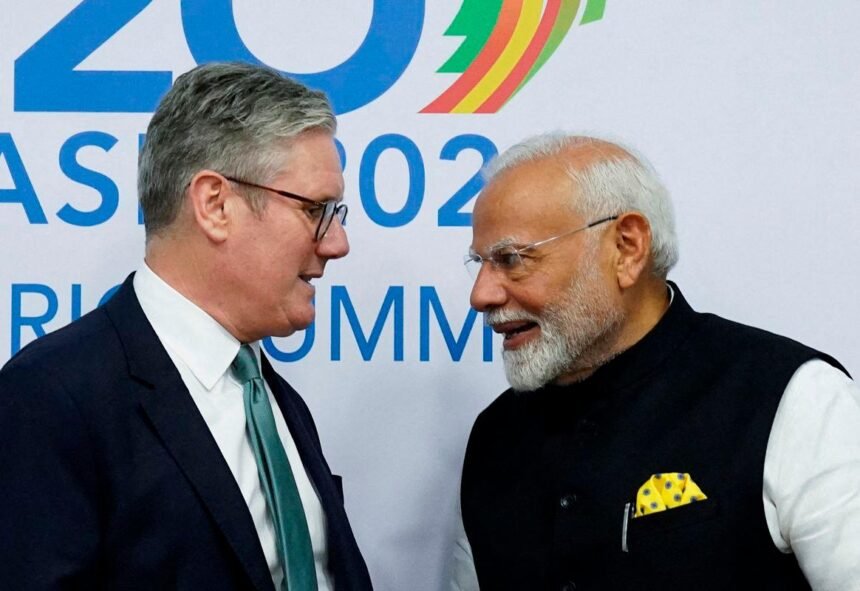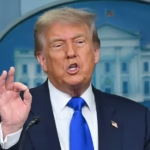India and the United Kingdom signed a landmark Free Trade Agreement (FTA) on Thursday during Prime Minister Narendra Modi’s visit to the UK. Modi met British Prime Minister Keir Starmer at Chequers, the official country residence located around 50 kilometres northwest of London.
This development comes as Prime Minister Modi undertakes a two-day visit to the United Kingdom, aimed at deepening bilateral ties across critical sectors such as defence, trade, and technology. A major highlight of the visit has been the formalisation of the Free Trade Agreement (FTA).
The agreement guarantees zero tariffs on 99% of Indian exports to the UK, effectively encompassing nearly the entire trade volume between the two countries.
The elimination of import duties is set to boost key labour-intensive sectors — including textiles, leather, footwear, and gems and jewellery — by improving the competitiveness of Indian products in the UK market.
The India-UK FTA is expected to open new pathways for economic expansion and job creation, especially benefiting India’s youth.
The agreement between New Delhi and London is expected to significantly benefit India’s services sector, including Information Technology (IT), IT-enabled Services (ITeS), financial services, and professional services such as management consultancy, architecture, engineering, and education-related services, according to a report by news agency ANI.
Beyond services, the deal also ensures duty-free access to the UK market for a range of labour-intensive Indian exports, including textiles, leather, footwear, furniture, gems and jewellery, and sports goods.
With the UK currently importing over USD 23 billion worth of such goods annually, the pact opens up substantial opportunities for increased production and employment in India, particularly for its young workforce.
A major highlight of the agreement is the exemption of Indian professionals from social security contributions in the UK during temporary assignments of up to three years — a move expected to ease mobility and reduce costs for Indian companies operating in the UK.
This change is expected to lead to substantial financial benefits for Indian service providers while enhancing their global competitiveness. It also makes international assignments more appealing for young Indian professionals by offering valuable global exposure and career growth opportunities.
The Free Trade Agreement further seeks to streamline business operations by encouraging transparency, regulatory alignment, and public consultation—steps that are likely to support and empower young entrepreneurs.
The Digital Trade Chapter of the FTA emphasizes building a secure, inclusive, and open digital ecosystem. With a focus on cybersecurity and consumer protection, it aims to create new avenues for youth in the rapidly growing digital economy.
Additionally, the agreement outlines cooperation in key areas such as skill development and mutual recognition of qualifications. This will help align Indian skillsets with international standards, significantly boosting the employability of Indian youth both domestically and in global markets. (Agencies)








